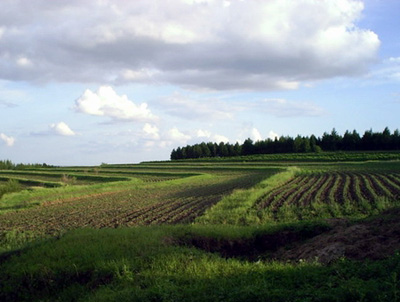| Home / Environment / Photo News | Tools: Save | Print | E-mail | Most Read |
| Black Soil Erosion Threatens Granary |
| Adjust font size: |
Scientists are worried that
"The northeast areas are the granary of the country. Soil erosion and degeneration will jeopardize the nation's grain security," warned Zhang Xudong, a soil expert with the Shenyang-based
Studies by the CAS’ Northeast Institute of Geography and Agro-ecology and the
A further worry comes from the drop in the density of organic substances in the soil, from 12 percent in the 1940s to less than 2 percent, experts said, which translates into 85 percent of the soil suffering from insufficient nutrients. The crescent-shaped black soil belt is a leading commodity grain base in However, excessive farming, overuse of fertilizers and relentless logging have caused the soil to erode and its quality to degenerate. Soil erosion has adversely affected the local ecology, resulting in more frequent droughts, floods and sandstorms, said Yan Baixing, a researcher with the Northeast Institute of Geography and Agro-ecology. Zhang said: "We need to do everything to protect the soil from erosion and degeneration now. If we don't take action now, history will be repeated". Zhang is referring to the "dust bowl" disasters which hit the "We mustn't kill the goose that laid golden eggs. The land must not be farmed to death," Zhang said. Last week, "Protecting the soil doesn't mean we have to cut more trees to develop arable land. What we need to do is to reinforce irrigation facilities, and do everything we can to transform the low-yield crop fields into high-fertility land," Zhang Guobao, NDRC vice-minister, said at a press conference. Researchers said more ponds and reservoirs would help restore soil moisture, and stable forest belts would rebalance the soil. Furthermore, farmers are being encouraged to leave manure and corn stalks in the field to increase nutrient content. (Xinhua News Agency August 28, 2007) |
| Tools: Save | Print | E-mail | Most Read |
 |
| Related Stories |
|
||

